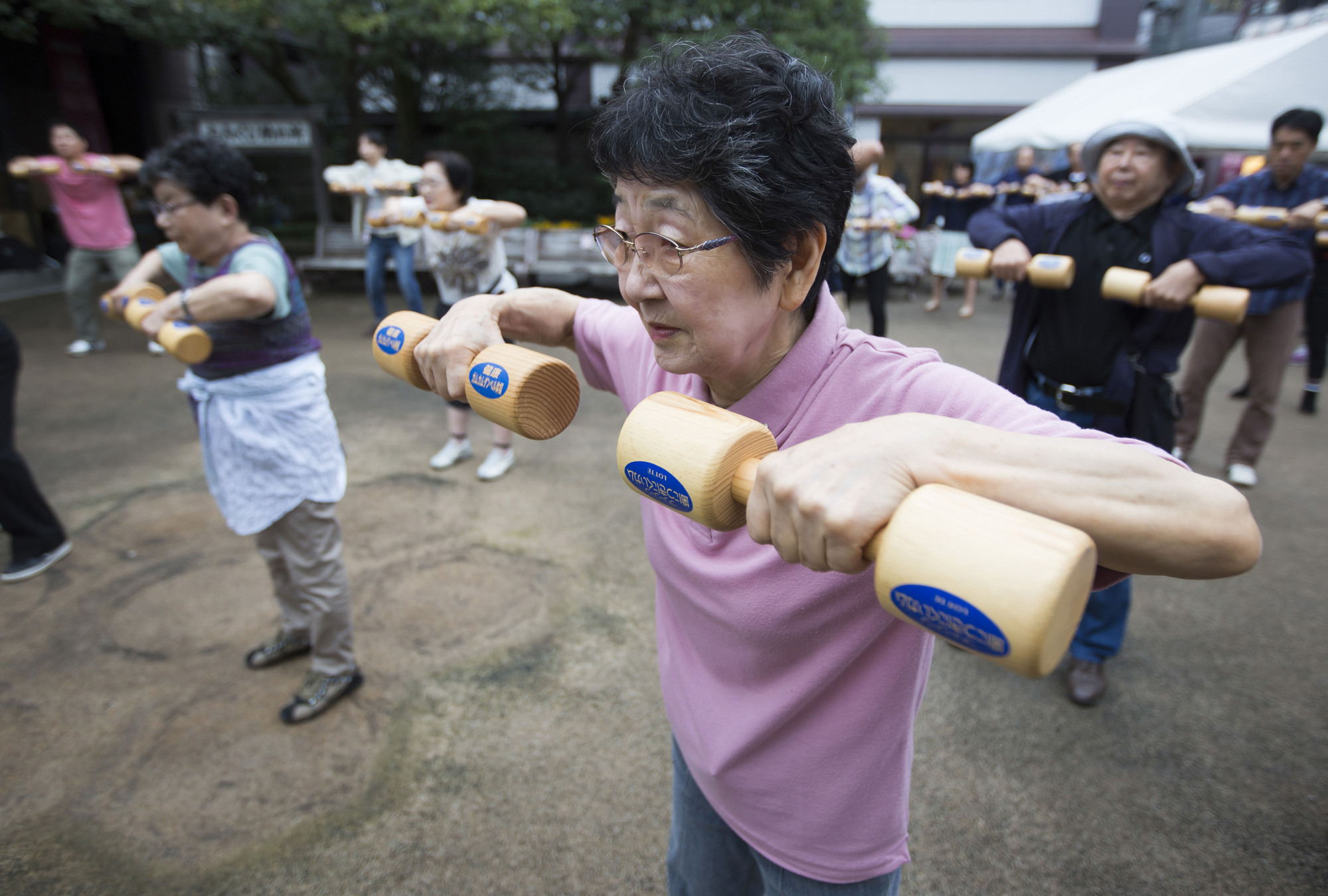The Beatles song "When I'm 64" specified that age as one of retirement and grandchildren. Today, the mid-60s seems a tad too young for both those things. But consider this: Back in the 1960s when Paul McCartney wrote that song, the average life expectancy worldwide was 52 years old, according to World Bank data. Fifty-two!
Fast-forward to present-day Japan and 52 is まだまだ若い (mada-mada wakai, still quite young). Some people marry at that age, or leave their parents' houses to try living on their own. Fifty-two is still fraught with romance, adventure, possibilities! At least that's what the media will have us believe, as Japan has entered the era of 人生百年 (jinsei hyakunen, the 100-year life).
A century ago, any Japanese who lived till their 還暦 (kanreki, 60th birthday) was thrown a big party and presented with a 赤いちゃんちゃんこ (akai chanchanko, flaming red vest) as a celebratory token of longevity. And if that person lived another 10 years, they were thrown an ever bigger party for having reached their 古希 (koki, 70th birthday). Koki — short for 古来稀なり (korai marenari, a rare occurrence in ancient times) — is a phrase that's no longer in circulation, though my older relatives like to recall it, laughing to each other that they've become rare specimens.



















With your current subscription plan you can comment on stories. However, before writing your first comment, please create a display name in the Profile section of your subscriber account page.